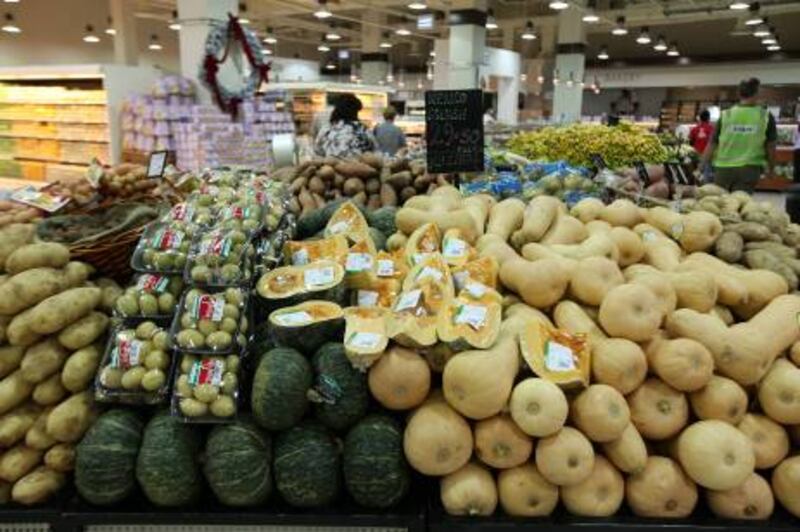ABU DHABI // Supermarkets are facing growing pressure from suppliers to increase their prices, despite several warnings from the Ministry of Economy.
Last week, the Cabinet ended import monopolies on more than 12 essential commodities including honey, eggs, fruit juices, salt, yeast, animal feed, dairy products, detergents and hygiene products.
But while the Government had hoped the move would boost competition between suppliers and allow shops to offer lower prices, the result has been greater pressure from suppliers to raise prices.
"The daily conversations going on between retailers and suppliers revolve around the increase of prices," said Peter Lonsdale, the retail operations manager at LuLu Hypermarkets in Abu Dhabi. "We get pressure from these retailers all the time."
Mr Lonsdale said in general, suppliers increase their prices by between 5 and 15 per cent, but LuLu would not give into the pressure.
"We have to abide by the ministry and not increase our prices on a range of commodities without their authorisation," he said. "We can't just go and increase prices until we get the ministry's approval."
Fahmi Al Shawa, the managing director of Convenience Arabia, which is based in Dubai and owns the Circle K brand, said his company's prices were also subject to ministry approval.
But Mr Al Shawa said 95 per cent of the price of luxury items and basic commodities was dictated by suppliers.
"We fight with them regularly to maintain prices," he said. "At the end of the day it all depends on them."
Mr Al Shawa said prices tended to increase by a few percentage points each year.
"It's not on everything but about 30 to 40 per cent of what we sell," he said. "It's not the case with all our suppliers but I can understand their point of view as their costs are rising as well."
Ginny Sahni, the managing director of the Ginny's convenience store and bakery chain, based in Dubai, said some suppliers had a monopoly on certain branded products, allowing them to dictate prices.
"For things like daily consumables like toiletries, if the price goes up people might not buy it for a few days but then there is no alternative source so they will go back to it," Mr Sahni said.
Even small increases made a huge difference to suppliers because of the volume, he said.
The ministry has warned all suppliers against increasing the price of any commodities.
"This is not just the case for the 12 commodities that were liberalised last week but for all products, local and imported," said Dr Hashim Al Nuaimi, the ministry's head of consumer protection. "They are not allowed to do so without the ministry's consent."
Dr Al Nuaimi said suppliers who did not abide by the rules would be given a warning. Those who still refused to drop their prices would face fines of between Dh5,000 and Dh100,000.
"If they persist we will take them to court," he said.
But Mr Al Shawa complained that supermarkets had been given no clear guidance about the changes beyond the ministry's announcement.
"At the moment it's not clear what the changes will mean because we don't know what it will involve, so I can't say if prices will fall," he said.
But Mr Lonsdale said that consumers should expect cheaper prices at the supermarkets, "without the shadow of a doubt, especially as most of the food in the UAE is imported".
nhanif@thenational.ae






